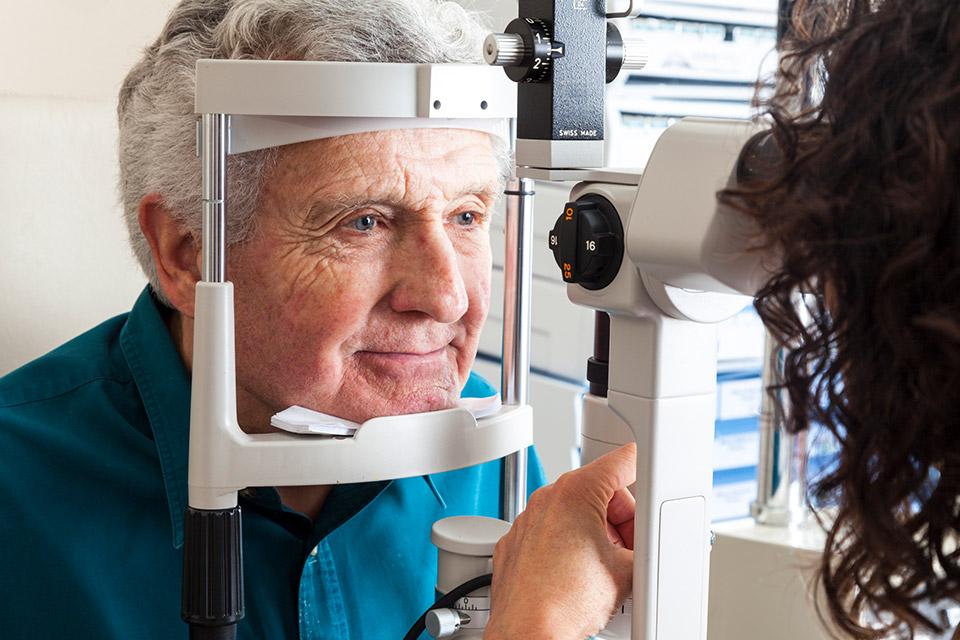Diabetes (also called high blood sugar) can lead to eye problems that cause vision loss or blindness. Everyone with diabetes should have regular eye exams. The longer you have diabetes, the more likely you will have eye problems. By the time you notice vision problems your eyes may already be seriously damaged. Early treatment may help protect your vision. A complete exam can check for common eye problems that develop over a period of years and help treat symptoms early.

Why Do People With Diabetes Need Eye Exams?
- People with diabetes are at risk for diabetic retinopathy. When blood sugar stays above normal for a long time, the small blood vessels in the retina (an inside part at the back of the eye) can be damaged. These blood vessels may begin to leak and bleed. If not recognized and treated, this can lead to serious eye damage, possibly blindness.
- People with diabetes are also at a higher risk for glaucoma. Glaucoma is increased pressure inside the eye, which can cause blindness.
How Often Should You Be Tested?
If you have diabetes you should get tested every year — more often if your doctor recommends it. If your eye exam results are normal, your doctor may consider follow-up exams every two years instead of every year. But if you are diagnosed with diabetic retinopathy or glaucoma, you may need eye exams more often.
How Can I Schedule an Eye Exam?
You can schedule an eye exam by contacting the Denver Health Appointment Center at 303-436-4949. Tell the agent you have diabetes and would like to schedule your eye exam.
